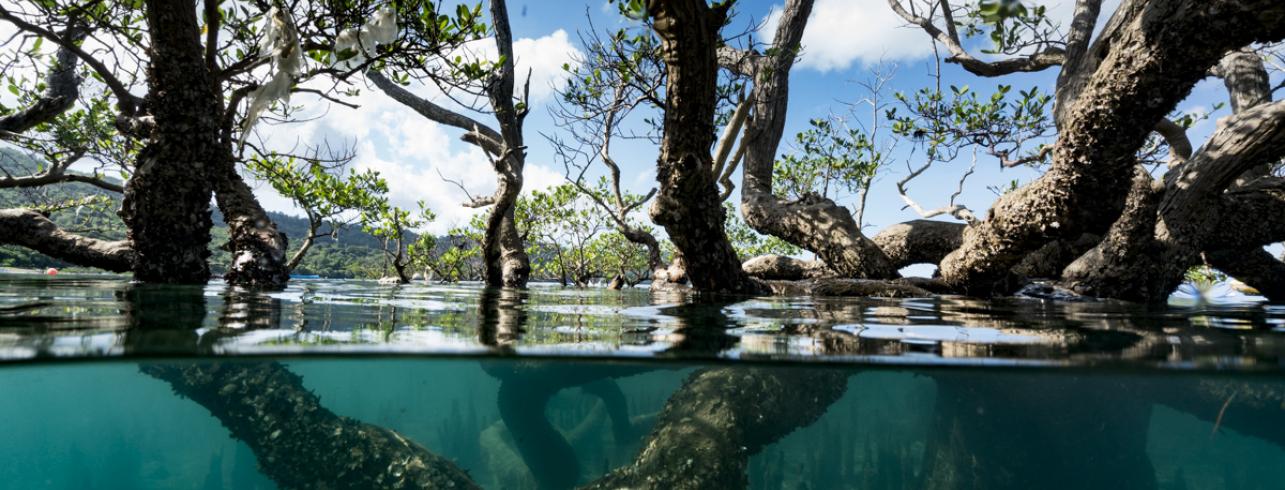Gathering governments, non-governmental actors and private actors, the Blue Carbon Coalition aims to accelerate investments in coastal carbon sinks.
Coastal wetlands - mangroves, salt marshes and seagrasses - have an outsized role to play in mitigating and adapting to climate change. When protected or restored, these ecosystems sequester and store globally significant amounts of carbon in the plants and soils beneath them – known as blue carbon.
The last decade has seen remarkable advances in science, policy, and development tools focused on coastal ecosystems and in understanding their geographic coverage, their temporal dynamics in terms of area (loss or expansion), and the dynamics of their contribution to climate mitigation and adaptation.
of mitigation potential by 2050 from protecting and restoring the world’s coastal ecosystems
The Glasgow COP26 marked an inflection point in the recognition of blue carbon as an essential nature-based solution to climate change. As the interest increases and a growing number of individual investments led by governments, organizations, and private companies, there is an urgent need to ensure that blue carbon ambition has the greatest possible impact for climate, communities, and biodiversity through the highest possible scientific standards and benefits for indigenous and local communities.
The goal is to develop conservation models that benefit the livelihoods worldwide with a focus on Least developed countries (LDCs), Indigenous Peoples and local communities. Accelerate and scale the development and implementation of blue carbon with the greatest impact for climate mitigation, risk management, and adaptation while supporting sustained investment in nature-based solutions that contribute to biodiversity protection and human wellbeing.
In February 2023, the coalition was integrated into the International Partnership for Blue Carbon as a High Level Ambition Group. To date, this group includes France, Conservation International, Australia, Costa Rica and Monaco.
The International Partnership for Blue Carbon was launched in 2015 during COP21 in Paris and now operates under the auspices of IOC-UNESCO. Its 55 members include international and regional organizations, government institutions, NGOs and research institutions. Its principal mission is to protect, sustainably manage and restore coastal blue carbon ecosystems that contribute to climate change mitigation, biodiversity, ocean economies and the livelihoods of coastal communities.

